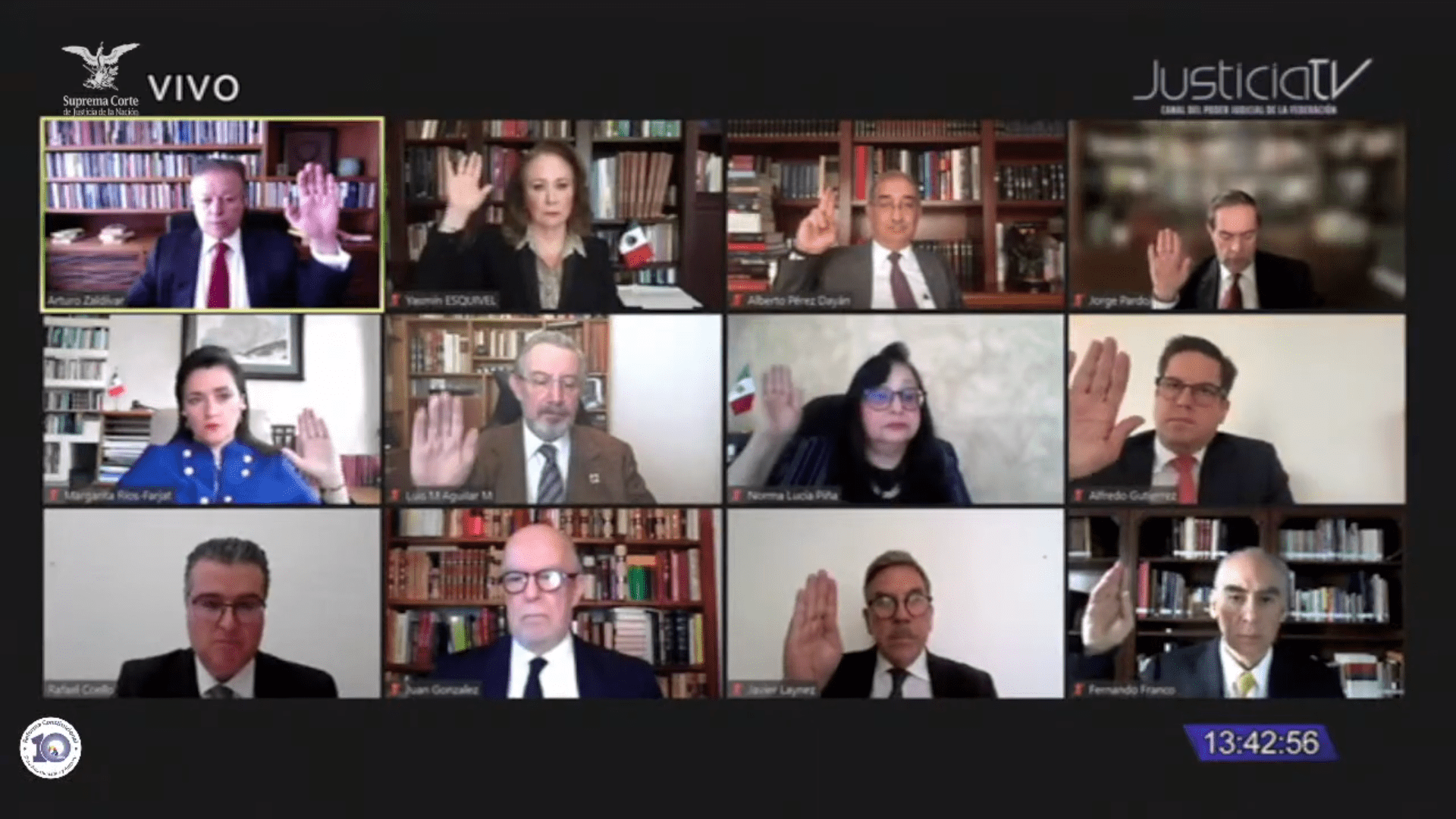After three years of delay, the Mexican Supreme Court has ended the prohibition of cannabis.
In a 9–2 vote Monday, the Mexican Supreme Court declared the prohibition of personal consumption, possession and cultivation of recreational weed as unconstitutional.
However, a law still needs to be passed and it’s still technically a controlled substance. But the consumption of THC is now considered a human right under Mexican law.
Selling and import also aren’t yet allowed.
All ministers agreed there still needs to be monitoring and control over use of the plant, to avoid further illegal activity and danger to society.
Minister Norma Lucía Piña Hernández, who listed the act of unconstitutionality June 10 that triggered Monday’s vote, suggested Mexico’s Health Secretary to be the regulatory agency to issue permits for adult consumption and self-cultivation. She also said the Federal Commission for the Protection Against Sanitary Risk (COFEPRIS) should be the regulator of seeds, in lieu of an existing legal source.
In the coming days, the proposed legislation will be published on the government website with further details and timelines. Lawmakers will be tasked to work with regulators to develop an acceptable final version.
Members of activist group Plantón 420 say they haven’t yet declared victory, as modifications to the legislation could carry worrisome limitations. One of their main concerns at the moment is if you need a permit to consume, then what happens when you light a joint on the street?
Read more: Mexican police ‘kettle’ weed activists, prevent protest at Supreme Court
Read more: Mexican activists call for declaration of unconstitutionality after weed law delay
During Monday’s discussion, President of the Senate Arturo Zaldívar Lelo de Larrea said he’s in favor of the declaration given the weight cannabis prohibition has put on the legal system, emphasizing how consumption of the plant shouldn’t be criminal. The Supreme Court’s function is to determine if something is unconstitutional or not, he noted, and legislation is the job of lawmakers.
Al resolver la declaratoria general de inconstitucionalidad 1/2018, la Corte eliminó la prohibición absoluta al consumo lúdico o recreativo de cannabis y THC que establecía la Ley General de Salud. El ejercicio del derecho de autoconsumo en ningún caso podrá afectar a terceros. pic.twitter.com/JvK4dPUdm3
— Suprema Corte (@SCJN) June 28, 2021
Ministers Yasmín Esquivel Mossa and Alberto Pérez Dayán dissented, expressing concern over possible dangers to society when it comes to second-hand smoke and how lifting prohibition could increase illegal activities given the lack of legal sources to cannabis.
In 2018, the court told lawmakers they had a constitutional duty to legalize recreational cannabis.
After three extensions from the Supreme Court, Mexican lawmakers had until April 31 to pass the law but failed to do so.
Read more: Senate delay of Mexican weed law a political tactic, deputy says
Read more: Despite major flaws, Mexican officials push pot bill to final stage
Follow Natalia Buendia Calvillo on Twitter
natalia@mugglehead.com














